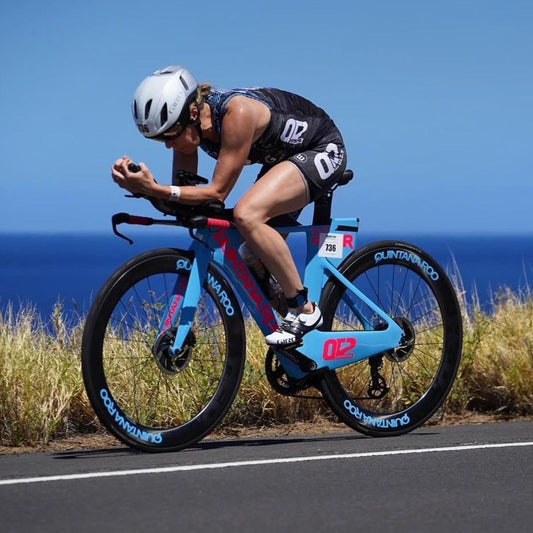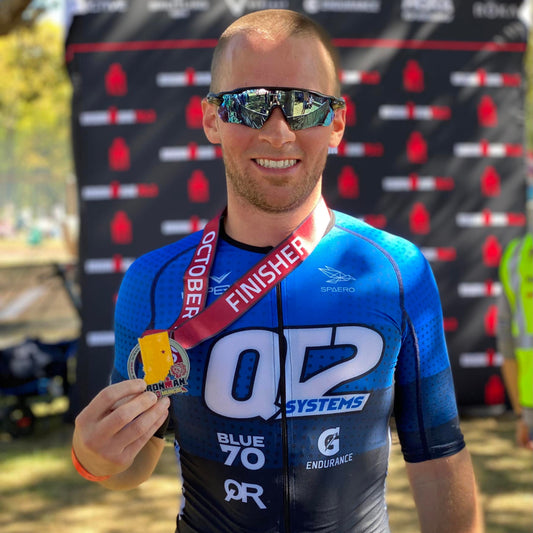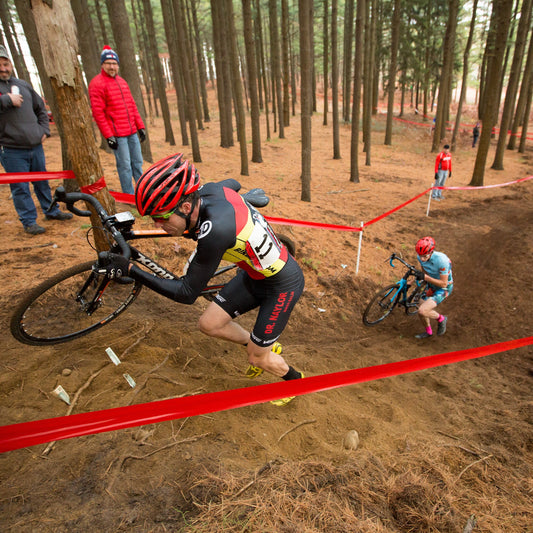Talking to other athletes (pro and amateur) and poking around on message boards, one of the most common things I hear when it comes to Ironman training is people saying “I don’t want to train for Ironman because it will make me slow.” This statement drives me crazy, and it’s time to rant about it…
First of all, it’s a ridiculous statement because training (properly) for an Ironman will make you faster… at the Ironman distance! True, a properly designed plan focusing on the IM will not optimize your performance at the Olympic distance, but it’s not supposed to optimize your performance at the Olympic distance. If it does, then your training plan is focusing on the wrong things. And let’s flip that statement around. You could just as easily say, “Training for an Olympic distance will make me slower”. Because, guess what??? A properly designed training plan to optimize your Olympic distance racing will not optimize your performance at the Ironman distance. Now, training to optimize your performance at the Olympic distance may also improve your performance at the Ironman distance, but it won’t optimize your performance at the Ironman distance. Here’s a summary of what I’m saying – if you think there’s a single training plan that will optimize your performance at every race distance, then you’re living in a fantasy land.
Second, it’s important to establish that there’s no such thing as “Ironman training”. If a coach tells you that everyone should train the same way for an Ironman, then he/she doesn’t really understand how to prepare an athlete for a race. Here’s how the process should play out:
1. Athlete and coach agree on goal races for the upcoming year, and decide on the “priority” race distance
2. Coach identifies an athlete’s strengths and limiters for that race distance
3. Coach designs a plan to correct the athletes’ limiters for that race distance without taking away from their strengths
Now it just so happens that for the vast majority of athletes, overall durability is the #1 limiter in Ironman, so most Ironman-specific training plans are somewhat similar in that they are designed to build durability, and the most common way to build durability is with longer workouts in the aerobic HR range (ex. 5 hour ride at 20 bpm below LT, or 3 hour ride at IM goal power, etc…). There are countless variations across the spectrum, of course, but I’m just speaking in very general terms here. When we get down to brass tacks, the basic goal is building enough durability into an athlete so that they can (relatively) comfortably cover 140.6 miles. Those “durablity building” workouts will not optimize an athlete’s performance at shorter distances, as there likely won’t be as much intensity as is involved with a typical Olympic distance optimizing plan.
Howeva… as an athlete becomes more experienced and has accrued more “lifetime mileage”, durability may no longer be the #1 limiter. This is where things get really fun for a coach, as the coach gets to attack more specific limiters and the level of customization for an athlete increases. And here’s where a lot of people maybe get tripped up and think that “Ironman Training” is making them slower. Because if an athlete has adequate Ironman durability, but the coach keeps focusing on building durability as the #1 priority, then an athlete will likely plateau. In situations like that, strength, or tolerance for higher intensities, may be the biggest limiters. And it may be appropriate to stop increasing volume, or maybe even decrease volume, and increase intensity across the board. Oftentimes, an athlete in this situation will have a training plan that has a lot in common with someone else who has less durability, but is focusing on shorter-distance racing. The athlete then will jump to the (incorrect) conclusion of, “I’m doing 70.3 race distance training, and it’s making me faster for Ironman! That stupid Ironman training was making me slow!” At which point I’ll start yelling, and my head may explode. Because even though an athlete thinks they’re doing “70.3 training”, all they’re really doing is training to eliminate their limiters at the Ironman-distance. And if they hadn’t spent the prior years building durability, then their “70.3 style training” would not be the right thing to optimize their performance at the Ironman-distance. And that brings us to the entire point of this article – There is no such thing as “Olympic distance training”, “70.3 training” or “Ironman training”. There is only “training”. And planned properly, that training will optimize an athlete’s performance at their priority race distance.
//end rant
Until Next Time… Keep training hard, and resting harder.
This post was written by QT2 Level 3 Coach, Doug MacLean.





